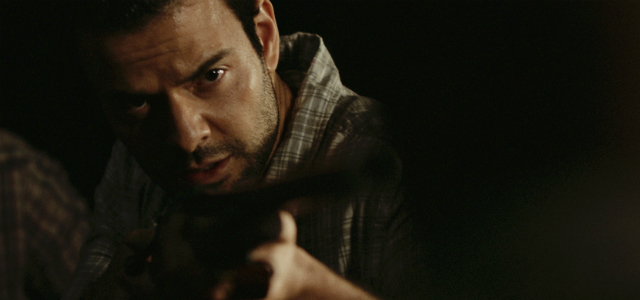Alexander Bedria
The director of The Zim talks racial dynamics in Zimbabwe and adapting his short to a feature.

Opening against the backdrop of Zimbabwe’s fraught post-colonial existence, Alexander Bedria’s The Zim sets about examining a supremely racially-challenging landscape. As a white son of ancestral colonists, living and working alongside a black native, Bedria walks a line of humble reverence as he attempts to diagnose the fierce divisions underpinning his story. There’s an awful lot of historical and political context to unpack, and Bedria is ultimately done a disservice by a format that requires narrative and emotional shorthand in the name of expediency; if anything, The Zim would benefit from a feature-length runtime.
But it’s not difficult to see how it managed to take home the top prize at the LA Shorts International Film Festival, where it recently premiered. Bedria has a keen eye for composition, and there are some delectable genre undertones hinting at this director’s ultimate big-screen ambitions. Joshua Glenn finds out more about his ultimate vision.
Joshua Glenn: What attracted you to the story?
Alexander Bedria: So many things. The accounts of the actual farm invasions as reported by major news organisations, Human Rights Watch, and Amnesty International, along with harrowing documentary footage. Digging into the history and researching the complex sociopolitical climate that lead to the land seizures, I felt there were many themes that could be explored within the context of the subject. Also, even though it’s a story unique to its region, I sensed a universality to the drama that could reach the hearts of wide audience. Additionally, these events had never been dramatised.
JG: Where did you draw cinematic inspiration from?
AB: Initially, I was excited by thematic parallels of The Zim to an American western, and started re-watching classics of the genre. My cinematographer Matthew Macar and I also looked at a lot of contemporary films that were set in southern Africa. We wanted to get a feel for how different people photographed the area to both emulate and divert from, creating our own unique visual palette for our film. We even watched documentary footage to see how could incorporate a grittier feel. Matt and I are both big John Toll fans, and drew inspiration from his work to help us craft that sweeping, epic feel that he created in his Oscar-winning work on Legends of the Fall and Braveheart. Edward Zwick, who directed Legends, is also a director whose work I admire. He has a way of seamlessly blending powerful themes with classic Hollywood storytelling, and that’s something I wanted for The Zim. It’s something not often seen in short films, and I’m proud of what we were able to accomplish.
JG: Were there any films in particular that acted as reference points?
AB: There wasn’t any one film that served as a map for us. Thematically, I mentioned drawing inspiration from conventions of the western genre, but visually had saved a series of clips from many varied films for reference points on camera movement, lenses, and blocking; it was helpful when planning shots with Matt, but also served helpful in the editing process with [editor] Anisha Acharya. For example, there’s a beautiful moment in The Last Samurai when Tom Cruise is being dressed by his caretaker. No dialogue, soft light and shadow. Just looks and score. This moment, though emotionally far removed from the bedroom scene in our film, felt appropriate visually. And when you see it in our film, it’s not that similar visually, but it gave us a jumping off point.
JG: How did you approach the challenging racial dynamics, as a white American?
AB: I took it as a responsibility to present as balanced and emotionally honest a story as I possibly could. Though our story is fictional, it is inspired by real accounts, so humanising the characters was of critical importance. Our wonderful actors rose to the task. I was also very mindful that, as an outsider, I’d be scrutinised by those close to the subject I was attempting to dramatise. Our co-lead actor and co-producer, Tongayi Chirisa, was invaluable in this regard. As a native Zimbabwean, he offered feedback on the script as it developed, helping me craft a respectful balance of the perspectives of the characters. Our collaboration was at the heart of this film.
JG: Do feel that this film carries a particular relevance in 2017?
AB: One of the most consistent pieces of feedback I’ve received is how topical The Zim feels. I sensed this might be a possibility while developing it, but wasn’t prepared for how strongly it would hit people. With the challenges of today’s political and racial climate, I’m happy the film seems to be opening a dialogue here in America about our own cultural struggles.
JG: Have you considered adapting it to feature-length?
AB: The subject matter is so densely complex, it would be well suited for a larger canvas like a feature. One of the biggest challenges with the short was condensing so much history and information, yet still having the story feel fully-rounded. I’m very open to the possibility!









COMMENTS